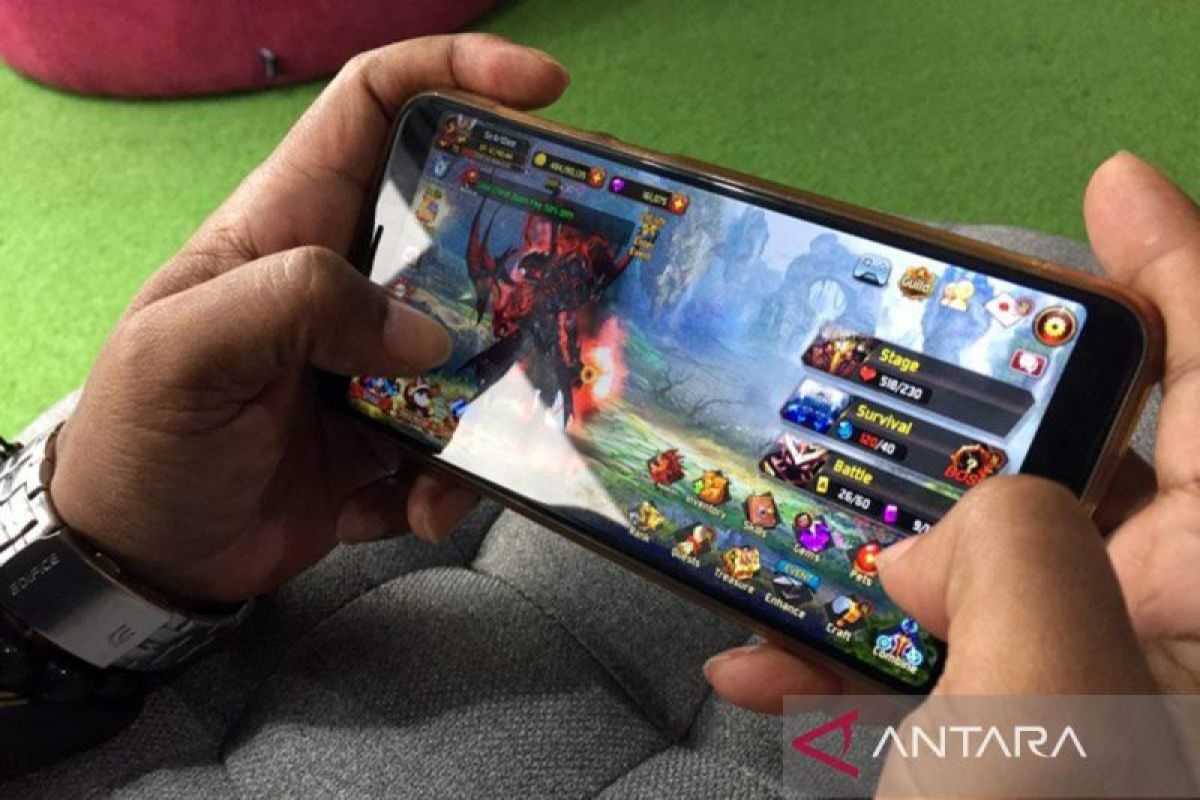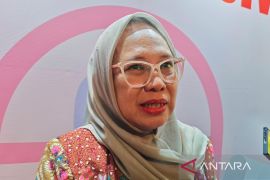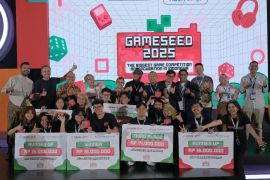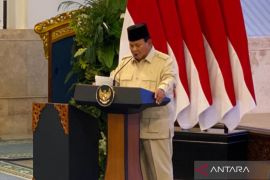Indonesia also accounts for 43 percent of game players in Southeast Asia, based on the Communication and Informatics Ministry's data.
Seeing this huge potential, President Joko Widodo on February 12, 2024, signed Presidential Regulation Number 19/2024, which aims to accelerate national game industry development.
The regulation is expected to drive the growth of the game developer sub-sector through research and education, funding facilities, infrastructure provision, marketing system development, incentives, protection of intellectual property, and protection of creativity.
During the launch of the National Game Day in Jakarta on August 8, chairperson of the Indonesian Game Association (AGI), Cipto Adiguno, said that some Indonesian games have attained success internationally, especially in Western markets such as the United States and Europe.
In addition, Adiguno hinted at potential markets for Indonesian games in eastern Asia, such as China.
"Many countries admire our games and even enthusiastically look for new games made in Indonesia," he said.
Representing Indonesia
According to Adiguno, some popular games by Indonesian developers include Coral Island, Potion Permit, A Space for the Unbound, and Coffee Talk.
As per information on its developer's website, Coral Island is "a re-imagined farm simulation game set on a tropical island that is inspired by the classics." Throughout the game, the player meets many inclusive characters, including characters with Indonesian names like Joko, Dinda, and Surya.
It also features Indonesian culture-inspired locations in the town that the player can explore, such as the "Lake Temple," which looks similar to temples in Bali; the "Alun-Alun" Square -- "Alun-Alun" means outdoor square in Indonesian; and the underwater "Naga Palace" where characters like Krakatoa, Miranjani, and Nagalita live.
The features of the game align with the views of the chairperson of Masyarakat Indonesia Emas Foundation (YMIE), Marsudi Wahyu Kusworo, who said that local cultures can be promoted to global audiences through games.
"It is important to create educational games that can build patriotism and nationalism or even those instrumental for introducing national cultures to foreign audiences," Kusworo said at a seminar on August 7, 2024.
He also suggested that game development be integrated into the education curriculum.
To promote Indonesian culture through games and develop the national gaming industry, AGI has received support from the National Research and Innovation Agency (BRIN) for the establishment of a game assets store.
The assets will be in the form of two- or three-dimensional characters, environments, objects, and audio that have the characteristics of Indonesian culture.
Challenges
Some battle games that contain violence can have a negative impact on children playing them, according to an NGO that focuses on child protection.
The NGO, led by Seto Mulyadi, argued that blocking violent games is part of an effort to fulfill children's rights.
"It is a child's right to grow and develop (without the influence of violence)," he said.
He expressed concern over the increasingly large number of online games containing violence, especially reports of cases of child violence influenced by the content of such online games.
In April this year, the Indonesian Child Protection Commission (KPAI) urged the government to take firm action against online games containing violence and sexual content given their adverse impact on children.
"The Communication and Informatics Ministry (Kominfo) must act immediately, issue a regulation to limit children from using online games, especially online games that contain violence and sexual (content)," KPAI member Kawiyan said.
In response, Communication and Informatics Minister Budi Arie Setiadi urged parents to supervise the mobile games their children play by paying attention to the games' classification, rating, and age recommendations.
Myriad opportunities
Meanwhile, AGI chairperson Adiguno expressed optimism that Indonesia's game industry will continue to grow positively in the next few years.
"This is because of the increasing quality of Indonesia's products, access to international cooperation and investment, as well as government support in the form of funding, education, and clearer regulations," he said.
The increasing number of games developed by small, micro, and medium enterprises (MSMEs) shows the progress of the game industry in terms of human resources.
"In addition, more and more games are developed by MSMEs, which show human resources with increased technical and entrepreneurial skills," he observed.
Opening wider access to funding resources is essential for taking advantage of the huge potential of the game industry, he said.
He further said he believes that the government's support through promotion and publication could attract investors and partners to collaborate with local game developers.
Related news: Collaboration, innovation key to develop gaming industry: ministry
Related news: Gaming industry earns US$1.5 bn in revenue in 2022: ministry
Related news: Govt drafting regulation to develop national gaming industry
Editor: Azis Kurmala
Copyright © ANTARA 2024












